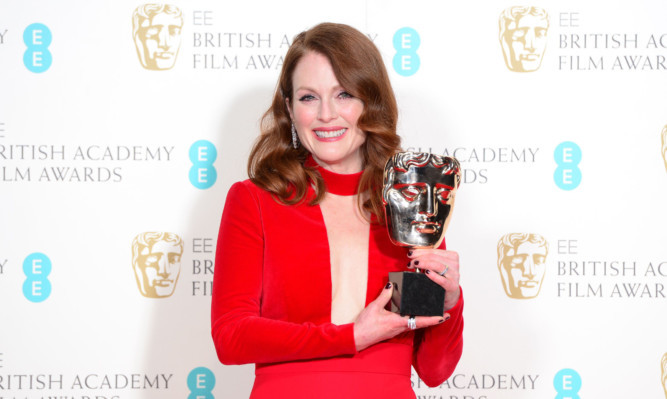
When Julianne Moore accepted her best actress award at the Bafta ceremony last week, she thanked the five Scottish women who had set her on the road to success as a child and “poured so much love into her”.
Julianne grew up in North Carolina but it was her visits home on holiday to her grandmother and aunts in Dunoon which played a big part in shaping the woman she grew up to be. Her role in the film Still Alice, about an intelligent woman who is losing herself to early-onset Alzheimer’s, is mesmerising and will do so much to help us understand the-life changing effects of that cruel disease.
The tribute by the 54-year-old Hollywood star to those early influences made me think about how we are shaped and moulded by the people around us.
My friend and colleague Dawn knows this to be true. Her feisty mum, her five aunties, her indomitable 87-year-old granny, showed her what family life was all about and this she is passing on to her daughter Daisy.
Girls learn to be strong and caring when they see this happening at home.
Dawn’s early experiences at work were shaped by the example of female colleagues who refused to accept the status quo and stood up for what they believed in. A valuable life lesson.
Perhaps it was the first teacher to recognise your gifts and encourage you to work harder and aim higher.
Perhaps you were lacking in self-confidence and someone said “try this” and you found you loved dancing, painting, baking or joining a political party and fighting for a cause you believed in.
My mum, who was widowed at the age of 33, had to bring me up on her own, work long hours, keep to a strict budget because there was no safety net and she taught me that you got out of life what you put into it. And that love is what matters most.
It was my auntie Jean who read books, liked intelligent debate and looked glamorous, who showed me that women can be who they want to be. Two husbands, three children later she’s still doing it at 90.
It was my English teacher Phoebe who nurtured my dream of writing. My generation, who grew up in the Sixties, think we invented Women’s Lib and equality but a whole army of strong women before us were working on the land, in factories, nursing, raising children, stretching the food and the pay packet to the end of the week, serving in wartime, working with their local church to run soup kitchens, encouraging their children to do well at school.
All of us owe these women a huge debt. They taught us how to live and love and to make the most of what we had and to be the best we could be.
So thank you, Julianne, for reminding us never to forget the women who were our role models and trailblazers.

Enjoy the convenience of having The Sunday Post delivered as a digital ePaper straight to your smartphone, tablet or computer.
Subscribe for only £5.49 a month and enjoy all the benefits of the printed paper as a digital replica.
Subscribe